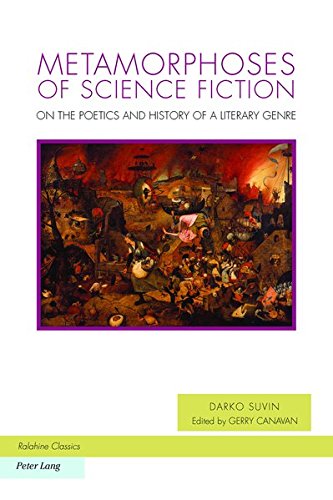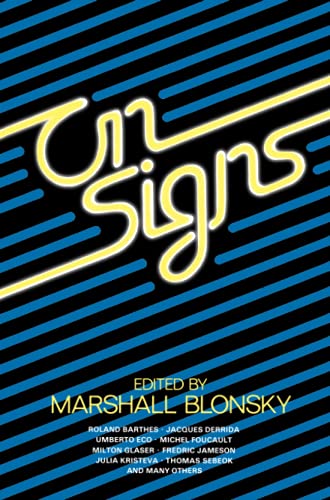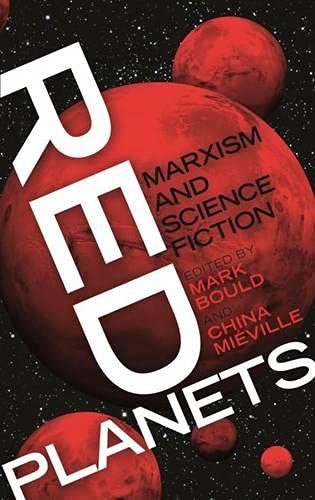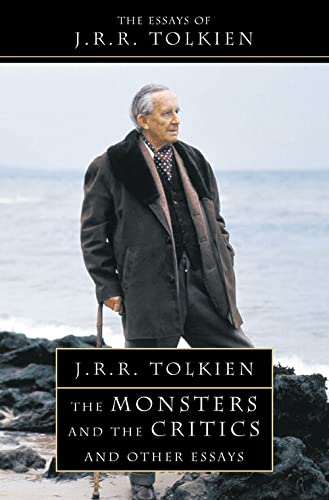Genre Boundaries: SF and Fantasy
Monday, January 31, 2022 at 4:15pm
This post was originally published on a prior version of my blog on January 5, 2019. I have made minor stylistic revisions only.
Suvin on Fantasy

Today I continued my exploration of the backmatter of the second edition of Darko Suvin’s Metamorphoses of Science Fiction. The second essay of the backmatter is titled “Considering the Sense of ‘Fantasy’ or ‘Fantastic Fiction’: An Effusion.” This essay explores the relationship between science fiction and fantasy in detail.
Suvin dismissed Fantasy entirely in the main text of Metamorphoses. Recall from yesterday’s blog post that the crux of SF is “cognitive estrangement.” The “cognitive” portion involves the reader reflexively comparing the altered world of the SF novel to their real world and reaching a new understanding about humanity, society, etc. Suvin allows in Metamorphoses that Fantasy can produce estrangement, but owing to the fact that the worlds of Fantasy are completely and utterly disjunct from the real world, he concludes that Fantasy’s estrangement cannot be “cognitive” in the way that SF’s estrangement can.
His “Considering the Sense of ‘Fantasy’” essay (written more than two decades after Metamorphoses) partially reverses this claim. Suvin opens with the admission that both SF and Fantasy are capable of sufficiently “cognitive” estrangement, but maintains that for SF the job is easier due to Fantasy’s structural limitations (Metamorphoses, 388). In a telling section on “science fantasy,” Suvin adamantly denies that anything productive can come from blurring the genre boundaries, since doing so would corrupt any potential cognitive qualities that the SF elements of the text might be capable of generating (415-20).
China Miéville on Fantasy
I decided to follow up Suvin’s essay with China Miéville’s essay, “Cognition as Ideology” in Red Planets, since I recalled from Gerry Canavan’s introduction to Metamorphoses that Miéville dissented from Suvin’s definition, and I trusted that Miéville would have something interesting to say on behalf of Fantasy. As I’ve come to expect with Miéville, I was not disappointed.
Miéville deconstructs Suvin’s concept of cognitive estrangement deftly in my opinion. Here’s a rough outline of his logic:
- Science is an evolving field. The body of knowledge it generates gets revised as new discoveries are made. What is accepted science today may be discovered to be unscientific tomorrow. Ergo, in order for a story’s elements to generate conformant “cognition,” they must constantly adapt to changing and evolving research. This is impossible for a story, since a story is an artifact fixed in a specific time, place, and culture of its creation. No work can be sufficiently “cognitive” by this definition.
- Okay, let’s adjust the definition, then. Miéville introduces Carl Freedman, author of Critical Theory and Science Fiction, who wrote that what is important is not “cognition” per se, but rather a “cognition effect.” The difference is subtle. “Cognition” involves a story being consistent with the science and technology of the real world. A “cognition effect” involves a story being internally consistent with the mechanics of any science and technology it represents within itself.
- But, wait a minute. If a “cognition effect” doesn’t depend on any connection to the reader’s reality, then neither is it dependent on the reader’s logic and reason. Rather, as with fiction of all kinds, it requires readers to suspend disbelief and enter this world of the narrative. This leaves the door open not just for legitimate cognitive engagement, but also for flimflam and more insidious influences.
- At this juncture, “cognitive estrangement” has fully broken down. A text cannot contain it, because any text that is internally consistent meets the definition, even if it maintains no connection or relationship to real-world logic and formal reasoning; ergo, no cognition of any kind. (Red Planets, 239)
Miéville proposes instead to understand SF and Fantasy both as genres of alterity (244). Miéville agrees with Suvin that a good SF text allows the reader to reformulate their conception of reality by offering a vision of a radically different world, but Miéville disagrees that Fantasy is any less up to the task, and further, both genres accomplish that goal through depictions of alterity.
My Thoughts
It seems to me that most readers’ consideration of genre happens at the time of book selection, as opposed to theorists, who are concerned with genres for much longer after the fact. Whereas the theorist’s job is to organize works into systematically comprehensible and analyzable corrals, readers tend to use genres to find work that they will engage with best.
I can think of three different kinds of reader approaches to SF and Fantasy genres. Group 1 searches out books that contain the kinds of props they enjoy (aliens, spaceships, and black holes; or, knights, wizards, and goblins). Group 2 is invested in stories of particular plot-type or espousing a particular worldview (engineering and math being utilized to solve complex problems and improve the world; or, heroic adventure, and the struggle for good to overcome evil). Group 3 expects stories to contain cognitive spaces for intellectual exploration (questions of where we are going as a society, how we are changing, and how we should direct change). The generic division into “SF” and “Fantasy” will be highly practical for groups 1 and 2; it will be confounding, and probably more than a bit irritating, for group 3, especially if the individual in question is also a literary theorist.
I suspect that both Suvin and Miéville fall into group 3. Suvin solved the conceptual problem by denying that groups 1 or 2 were worth his theory paying any attention to (it’s worth noting that SF represented a much larger body of work than Fantasy in 1979). Miéville appears to wish to solve the problem by collapsing the distinctions completely, if not now, then hopefully in the near future (he suggests as much on p. 244).
I can see how the generic categories are useful to groups 1 and 2, even though I find myself in group 3 as well—either genre will do as long as the story is sufficiently intellectually engaging, and I personally would happily clump the genres together if I had only myself to worry about. I think that Miéville is on to something with “alterity” being the shared component that unites SF and Fantasy, but I wouldn’t wish to obliterate the distinction between SF and Fantasy, because I can see how it is useful to others. Like Miéville, I am opposed to Suvin privileging SF over Fantasy.
Further Reading
J.R.R. Tolkien wrote essays, and one of them is about Fantasy! The book is called The Monsters and the Critics, and Other Essays. I can’t wait for this one. Thank you, Darko Suvin!
 Suvin also cited an article by Umberto Eco called “Towards a New Middle Ages.” It’s in a collection of essays called On Signs. Astonishingly, it was written in the 1970’s.
Suvin also cited an article by Umberto Eco called “Towards a New Middle Ages.” It’s in a collection of essays called On Signs. Astonishingly, it was written in the 1970’s.










